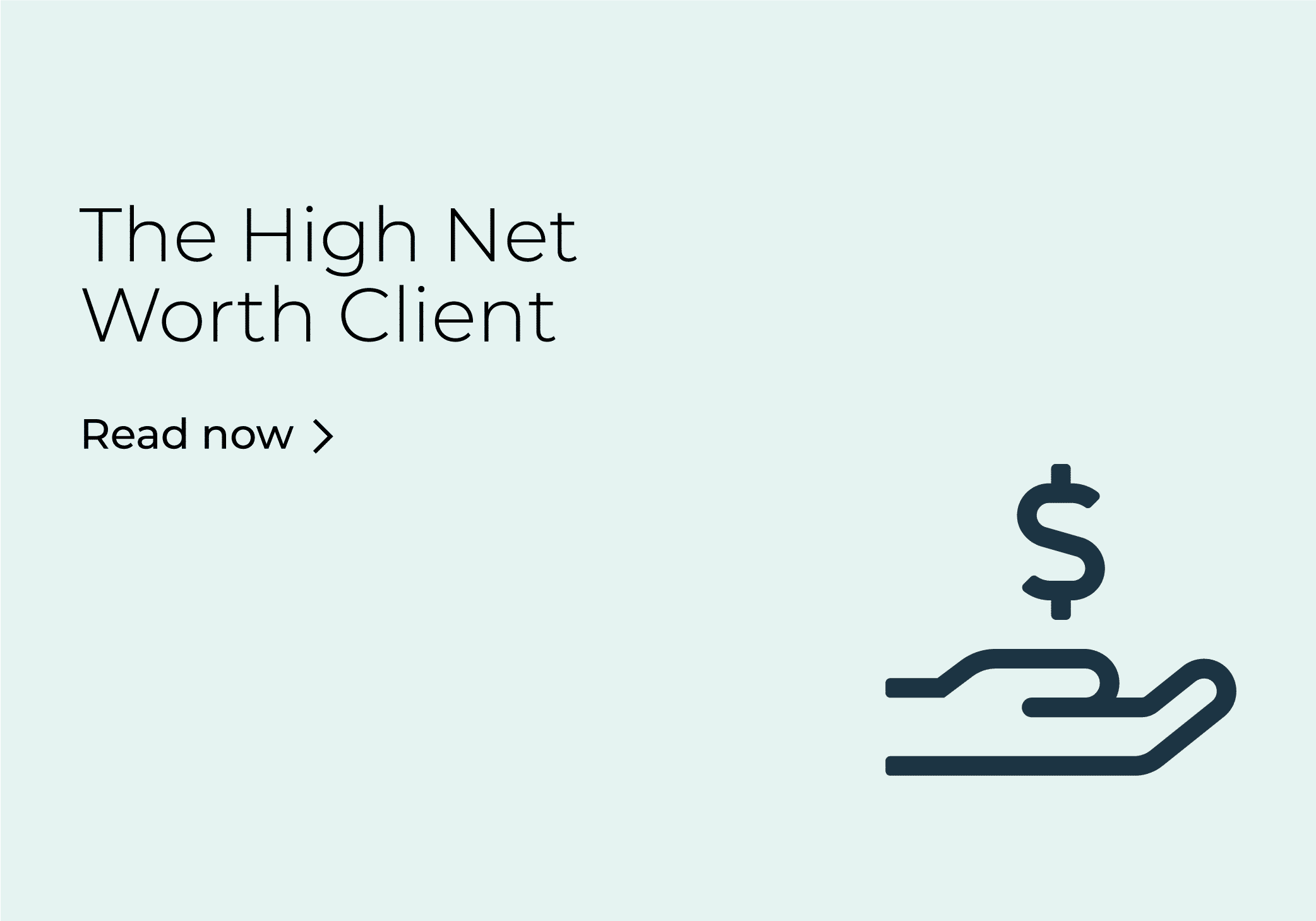
Meet High Net Worth Hilary
Hilary is the ultimate HNW stereotype: she loves yachting, opera and expensive champagne. Of course in reality, high net worth individuals (HNWI) are an incredibly diverse and eclectic group. But they do have some common denominators, such as high expectations when it comes to service and lack of time. So how can advisers deliver an experience to successfully engage this growing market?
The opportunity
Australia has the third largest segment of high net worth individuals in Asia-Pacific, with more than 230,000 people with $1 million or more in investable assets – and this figure is on the rise. From 2008 to 2016, HNW investors grew 41% from 250,000 to 425,000. But in the same period, the number of HNW investors using a financial adviser grew just 16% from 150,000 to 180,000.
In practice, what this has meant is that for most advisers, only 20% of their client base are considered high net worth.

While these figures might suggest a decline in the demand for advice amongst HNWs, this does not appear to be the case. According to The Investment Trends “2018 Financial Advice Report” 54% of HNW clients still say they have advice needs, with longevity protection, investment strategy and retirement planning topping the list.

What they want
Unsurprisingly, high net worth clients want a personalised service: a CEB 2018 Client Experience Survey found that 63% of HNW clients highly value advisers who personalise advice. But a personalised service goes beyond that: tailored communications directly relevant to their financial situation and an emphasis on transparency are key to providing a personalised experience.
High net worth clients also value their time. Beyond financial gains, they expect flexibility and simplicity. Advisers who are proactive (such as by keeping an eye on clients’ situations to spot potential problems and opportunities) and provide guidance along with clear explanations around financial decisions, find it easier to build a long-term, trusting relationship.
How to help them: 3 strategies to exceed the expectations of HNW clients
1. Show them everything in one place
Rather than servicing your HNW clients with a mountain of documents, across multiple folders, spreadsheets and logins to investment platforms, save them (and yourself) some time by aggregating their entire financial world in one place where you can collaborate. Whether it’s a carefully organised digital folder or a comprehensive client portal like myprosperity, you’ll both appreciate the transparency and efficiency gains this creates.
Even better, as most HNWIs work with multiple financial professionals, consolidating clients’ finances makes it easy for you to coordinate with their team (in myprosperity, you can invite others into your client’s portal and tailor their permissions via my team and position yourself at the heart of your client’s financial world.
2. Offer the ultimate flexibility: Go digital
HNW individuals are avid technology users. In fact, according to a Capgemini report, 82.5% of under-40 HNWIs expect all or more of their wealth management to be conducted digitally in the next five years. If you don’t already have a digital strategy in place, now is the time to start.
A personal finance app, such as the white-label one included in myprosperity’s Mobile First Plan, can help you position your firm’s premium offering with cutting-edge technology and deliver an exceptional – personalised – digital experience to match.
3. Tailor your services down to the last detail
For many high net wealth clients, it’s not all about money: instead, it’s about what the money can achieve. Whether it’s leaving a legacy for their children or philanthropic giving, understanding what motivates your clients, their goals and challenges, is critical to delivering a personalised service.
Once you’ve spent time understanding their needs, don’t squander that goodwill by sending HNW clients mass email campaigns or generic updates with little relevance to their personal situations. Instead, take them off your primary mailing list and send them fewer but more personalised updates, such as custom monthly reports.
With myprosperity, you can take personalisation a step further with features like the Executor Kit, a tailored, pre-populated document outlining a client’s assets, liabilities, and personal wishes to make things as easy as possible for their executor. The more personalised the service you provide, the more you’ll demonstrate a thorough understanding of their situation and build trust.


Recent Comments